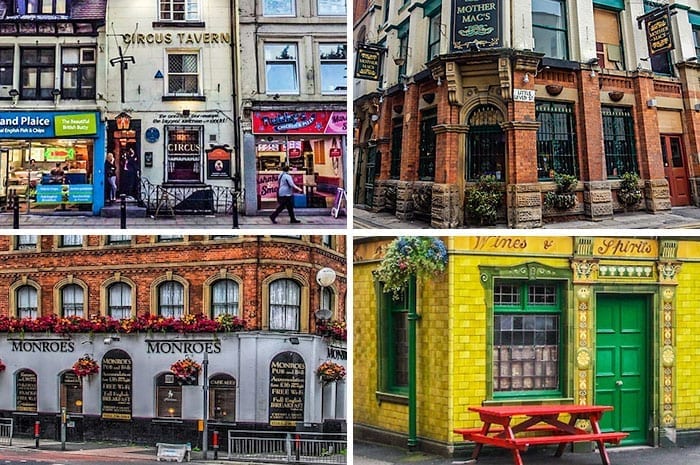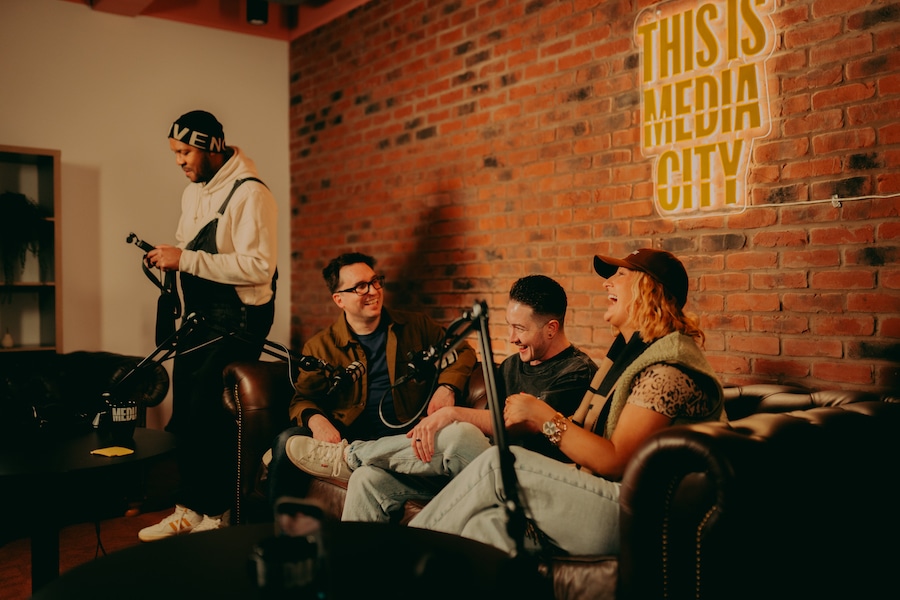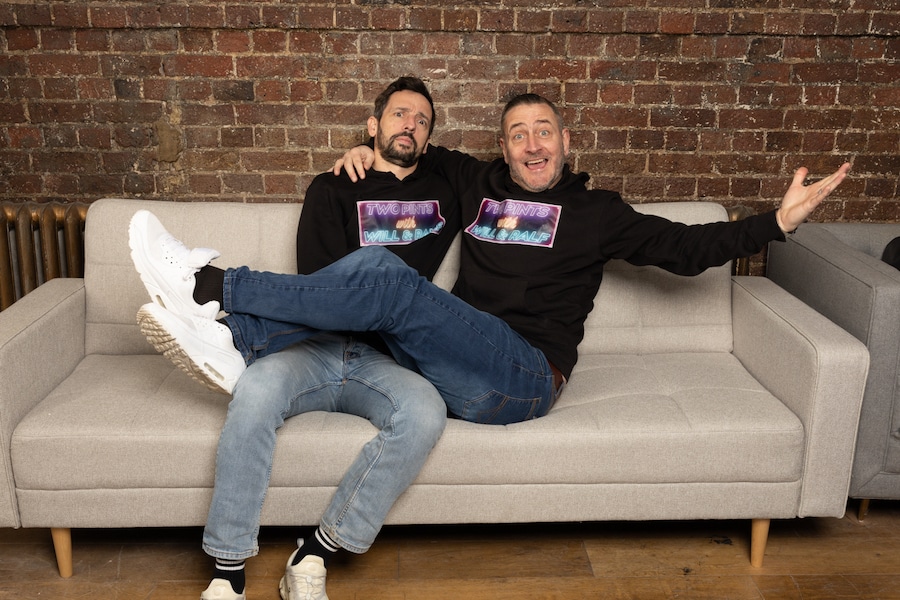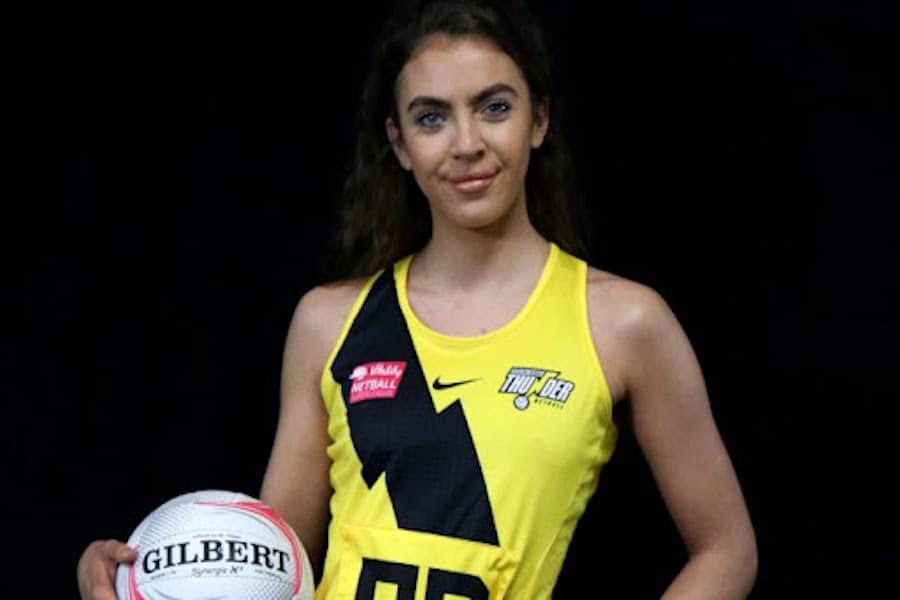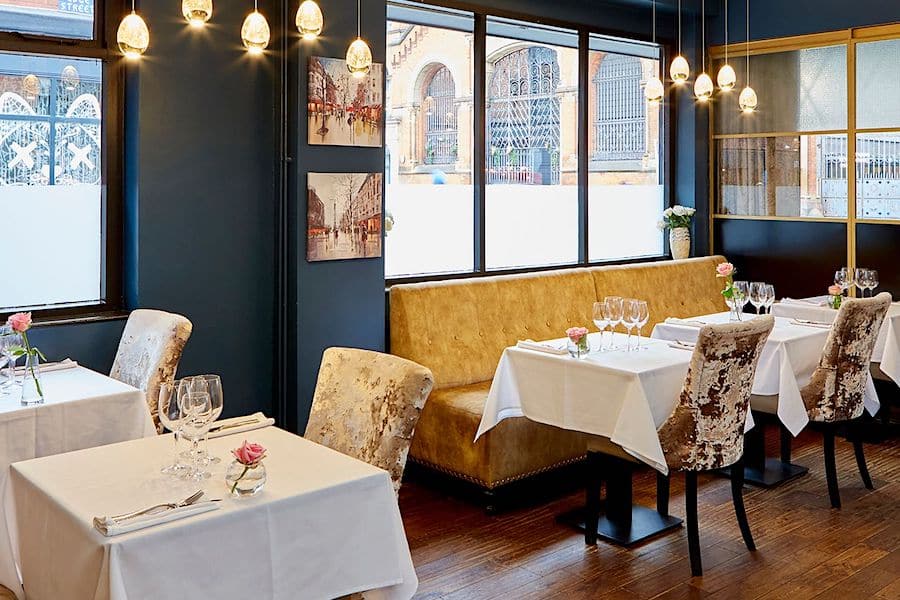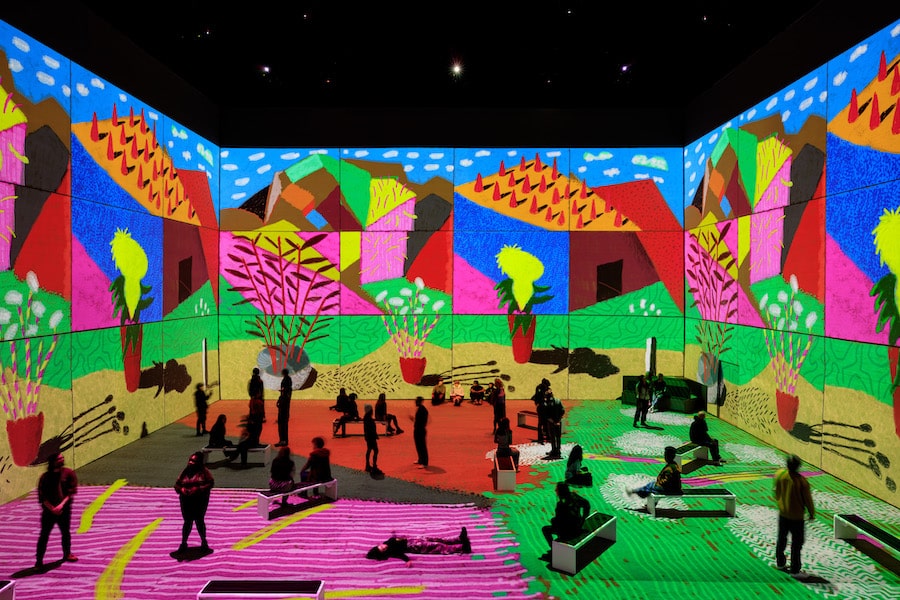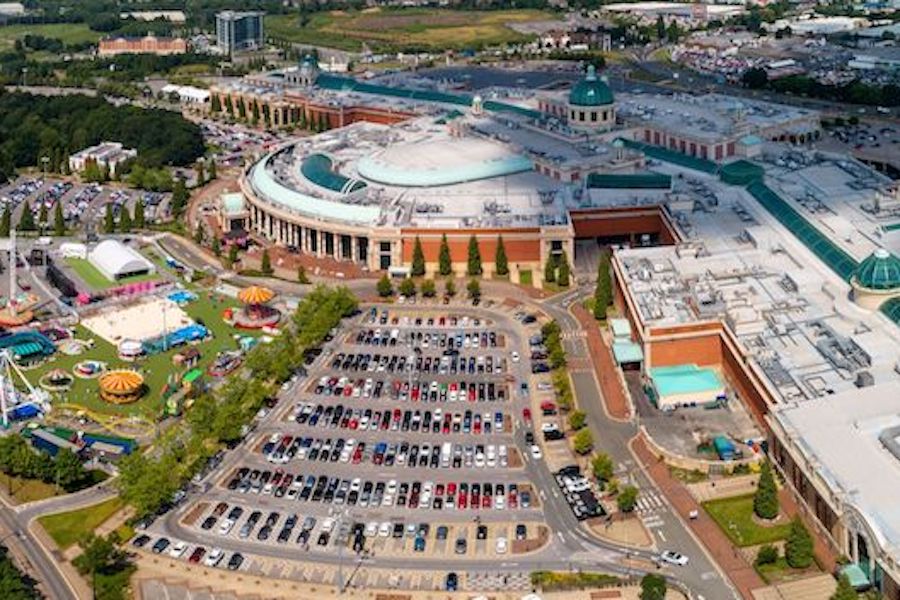Meet the incredibly talented flautist using music to improve lives
- Written by Thom Bamford
- Last updated 1 year ago
- City of Manchester, Community, Music, People
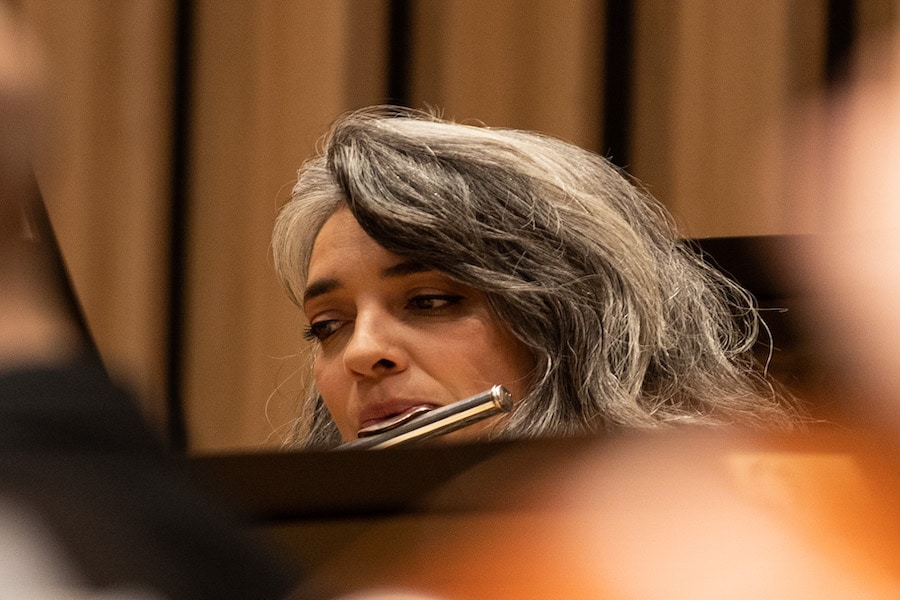
Amina Hussain is the Principal Flute Player with the Manchester Camerata and their newly appointed resident Music Therapist.
Amina’s recent achievement of winning an award at the Association of British Orchestras not only highlights her exceptional musical talent but also recognises her groundbreaking work in using music to improve the lives of those facing unique challenges.
She is a HCPC registered music therapist specialising in dementia, older adult mental health and adult learning disabilities, too.
Alongside her career as a stage performer, Amina has worked extensively in community and education, leading creative music-making for social development and wellbeing and specialising in dementia and older adult mental health.
Her involvement in Manchester Camerata’s Music in Mind dementia programme, led Amina to study music therapy with Nordoff-Robbins, and in 2019, qualified with her Masters (Nordoff-Robbins Master Music Therapy).
This has put her in a unique position of being a music therapist resident within an orchestra, and allows for her roles as a performer, community musician and music therapist to inform each other and develop the role of the orchestra within it’s own local community.
So how can music help people change their lives for the better?
We sat down with Amina to discuss how music can help people improve their life.
Congratulations on receiving the prestigious award from the Association of British Orchestras! How does it feel to be recognised for your groundbreaking work in using music to improve the lives of those living with dementia?
It feels fabulous, I’m extremely chuffed!
Can you share some personal anecdotes or stories that highlight the transformative power of music in your sessions with individuals living with dementia or learning disabilities?
Yes many. Very often we see really positive changes in behaviour such as a rise in posture, seeming more relaxed and more eye contact than before.
But the thing for me is, when the participants are making music with you and their eyes start to sparkle because something in the music has brought you both into the same moment together.
That’s the first recognition that we’ve boarded the train and we’re off!
That’s the transformative power of music for me, because that’s when the exciting feelings of emotional connection happen.
And the fun part is we don’t need to worry about the destination, we just enjoy the adventure.
Tell us about the weekly music cafes at the Monastery in Gorton and the fortnightly sessions at the Museum of Wigan Life. How do these community events contribute to the well-being of participants?
So, the music cafe in Gorton runs on a Wednesday morning in the main knave.
The atmosphere is so beautiful with the light and the grandeur of the space.
People living with dementia and their carers and family members come and enjoy improvising music together using the instruments we provide and we often end up dancing a fair bit as well.
It’s a bit of a fiesta at times!
In Wigan the music cafe runs at Museum of Wigan Life on a Monday afternoon.
It’s a really warm and friendly space, again, with lots of instruments to explore and a chance to socialise with others and share your musical interests.
The music cafes are full of joy and humour and endless cups of tea.
But most importantly you can just have an hour of relief or distraction from routine and be yourselves, however you’re feeling.
As a professional concert musician and community leader, how do you balance your roles as a performer and a music therapist? Do these roles influence each other in unexpected ways?
It’s hard sometimes! Each role demands a particular energy and focus, even though it falls under the same banner of making music with other people.
In the periods where I have both therapy sessions and concerts, that can feel full on, but the challenges and rewards of each really balance the other out.
Having been an orchestral player for 25 years now, all that technique and facility comes in so useful in therapy sessions when it comes to creating a sense of ease.
And I definitely find that I have much more musical clarity and alertness on stage as a result of the music therapy work, everything feels much more technicolour!
What challenges have you faced in bringing music-based therapy to care homes and individuals living at home with dementia, and how have you overcome them?
One of the biggest challenges is describing what music therapy is and how it works to potential homes and carers, as it’s often misunderstood as performance. This is totally understandable though, as there’s a really vibrant culture now of bringing live music into homes for entertainment.
The main difference with music therapy though, is that all the participants become the musicians straightaway, and we all improvise our own made up music together using instruments and singing, rather than me going in with a pre-decided session.
Being really clear about how interactive the process is makes such a big difference and giving carers a chance to try out these techniques themselves before we meet the residents means we can all support the music sessions more effectively.
The Music in Mind team’s work extends to reducing isolation among older adults. How has music proven to be an effective tool in fostering connections and combating loneliness?
When we improvise music together we start to make connections through the individual sounds being made in the group. Everyone has such different personalities and one person’s music might really motivate someone else to respond. When you have lots of these musical conversations happening at the same time, then there are lots of opportunities for people to chime in. That sense of being part of a bigger ‘conversation’, rather than just your own voice is what builds the desire for more moments of connection and so the music-making develops over time. We become friends through the music, without actually saying a word, and inevitably, we feel less alone when we have a common bond and sense of community.
How has the Music in Mind program evolved, and what future developments or expansions do you envision for the initiative?
Music in Mind started 12 years ago and in that time things have really progressed. At the beginning our projects were very short and it was hard to gather evidence of effectiveness. But over time, projects became more substantial and we started to reach more people. During this time we partnered with Manchester University to assist with evaluations and more of our orchestral musicians became interested in the work. S
o now we have a mega team of musicians and music therapists covering a lot of Greater Manchester, and training care staff in music-making techniques to become Music in Mind ‘Music Champions’.
A Music Champion is a carer or volunteer who signs up to be part of a 30 week project where you participate in all the live music sessions we deliver, learning experientially, then do online training with us to consolidate all of the practical and musical information, in order for you to run your own sessions with our continued support.
We have also trained orchestral musicians and healthcare workers in Japan, Taiwan and Sweden in the principles of Music in Mind as they are also passionate about looking after their elders just as we are.
As for the future, we hope to expand far and wide! And get homes and carers using music to help with their day to day needs.
And personally, I would love to see more orchestral musicians doing this work.
The collaborations could be immense, and most importantly, we could reach so many more people living with dementia. Wouldn’t that be wonderful?
You can find out more about what Manchester Camerata have in store on their website by clicking here
- This article was last updated 1 year ago.
- It was first published on 29 January 2024 and is subject to be updated from time to time. Please refresh or return to see the latest version.
Did we miss something? Let us know: [email protected]
Want to be the first to receive all the latest news stories, what’s on and events from the heart of Manchester? Sign up here.
Manchester is a successful city, but many people suffer. I Love Manchester helps raise awareness and funds to help improve the lives and prospects of people across Greater Manchester – and we can’t do it without your help. So please support us with what you can so we can continue to spread the love. Thank you in advance!
An email you’ll love. Subscribe to our newsletter to get the latest news stories delivered direct to your inbox.
Got a story worth sharing?
What’s the story? We are all ears when it comes to positive news and inspiring stories. You can send story ideas to [email protected]
While we can’t guarantee to publish everything, we will always consider any enquiry or idea that promotes:
- Independent new openings
- Human interest
- Not-for-profit organisations
- Community Interest Companies (CiCs) and projects
- Charities and charitable initiatives
- Affordability and offers saving people over 20%
For anything else, don’t hesitate to get in touch with us about advertorials (from £350+VAT) and advertising opportunities: [email protected]
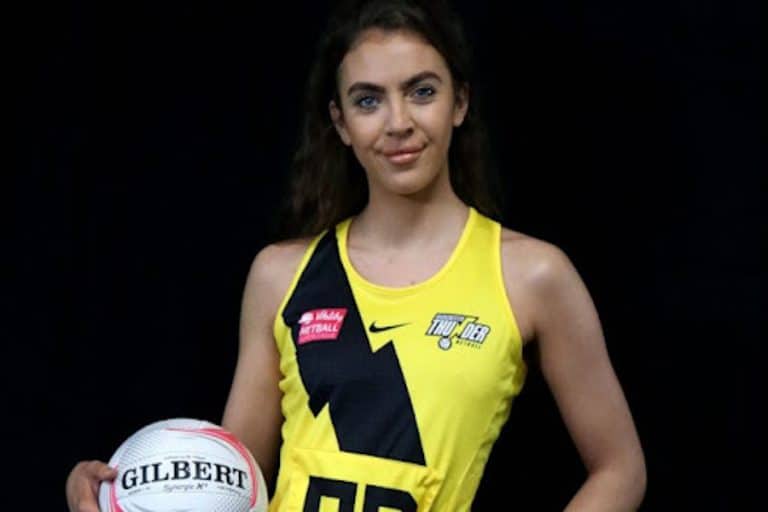
Fast, fierce and unmissable: Manchester Thunder are bringing Netball like you’ve never seen it before!

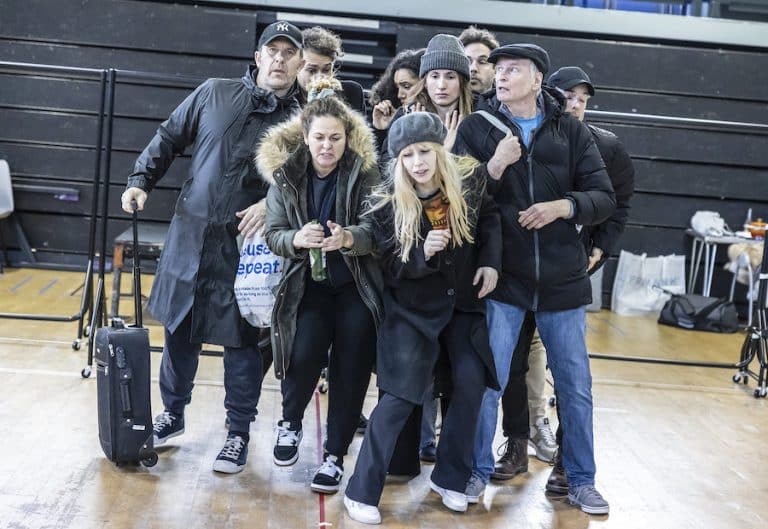
Review: Girl on the Train at LOWRY is a’ tour de force in psychological drama’
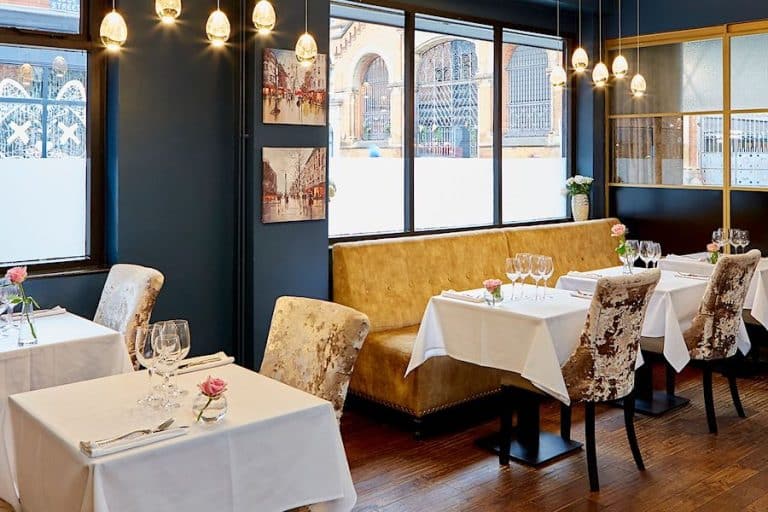
Where the Michelin Guide recommends to eat in Manchester








